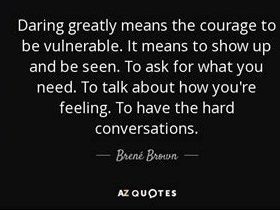
Empty Nest Syndrome
Understanding Empty Nest Syndrome: A Guide for Parents When Children Leave for UniversityNavigating the Transition with Compassion, Resilience, and New Opportunities
Introduction
The day your child leaves for university is a milestone filled with pride, excitement, and, for many parents, a sense of profound change. As you help them pack their suitcases and wave them off on their new adventure, you may find yourself grappling with a quiet house and a heart full of mixed emotions. This experience is commonly known as ‘empty nest syndrome’ – a term that describes the feelings of sadness, loss, or loneliness that parents may experience when their children move out to live independently.What Is Empty Nest Syndrome?
Empty nest syndrome isn’t a clinical diagnosis, but it’s a very real emotional response. After years of a bustling household, routines centred around your child, and the daily demands of parenting, the sudden change can leave an unexpected void. You might find yourself missing the little things – the sound of laughter from their bedroom, family meals, or even the chaos of morning routines.Why Do Parents Feel This Way?
The transition to university marks a significant shift in family dynamics. For many parents, their identity is tightly interwoven with their role as a caregiver. When that daily responsibility lessens, it’s natural to feel adrift. Common feelings include:- Loss of purpose: Wondering what to do with your time now that your child is away.
- Worry: Concerns about your child’s wellbeing, academic success, and ability to cope with independence.
- Loneliness: Missing their company and the energy they bring to the home.
- Mixed pride and sadness: Feeling proud of your child’s achievements while mourning the end of an era.
Tips for Coping with Empty Nest Syndrome
While the transition isn’t always easy, it can also be an opportunity for personal growth and renewed connections. Here are some practical strategies to help you adjust:- Stay Connected, But Give Space:
- Regular calls, texts, or video chats can help keep your bond strong, but remember to respect your child’s independence. Let them come to you with their stories and challenges.
- Rekindle Old Interests or Discover New Ones:
- Use this time to revisit hobbies you may have put aside or to try something completely new. Whether it’s joining a book club, taking a cooking class, or starting a new fitness routine, investing in yourself can be deeply rewarding.
- Reconnect with Your Partner or Friends:
- The empty nest phase can be a chance to nurture relationships that may have taken a back seat. Plan date nights, weekend getaways, or simply enjoy quiet evenings together.
- Volunteer or Get Involved in the Community:
- Giving back can provide a sense of fulfilment and purpose. Look for local charities, mentoring opportunities, or community events to get involved in.
- Talk About Your Feelings:
- It’s perfectly normal to feel a sense of loss. Share your thoughts with friends, family, or support groups. Sometimes, just knowing others feel the same can be comforting.
Looking Forward: Embracing Change
As your child takes their first steps towards independence, it’s a testament to the wonderful job you’ve done as a parent. This new chapter can be a time of self-discovery and renewal. While the quietness of the house may feel strange at first, it’s also an invitation to reimagine your life, set new goals, and savour the freedom to focus on your own dreams.Remember, you’re not alone – thousands of parents across the UK share these feelings every autumn as university terms begin. With time, patience, and a bit of self-compassion, the empty nest can become a place of growth, joy, and new beginnings.Further Support
If you find your feelings of sadness lingering or affecting your daily life, consider reaching out to a counsellor or your GP. Support is available, and seeking help is a sign of strength.Final Thoughts
Watching your child head off to university is both an ending and a beginning – for them and for you. By acknowledging your emotions and embracing the opportunities ahead, this transition can lead to a deeply rewarding new chapter in your own life.
Happiness versus Contentment
Happiness Versus Contentment: A Journey Through Emotions Understanding the profound distinction between fleeting joy and enduring peace Happiness and contentment are two emotional states often intertwined in conversations about well-being. While they connect to positive experiences and feelings, their nature, sources, and effects are distinct. Happiness is often seen as a spark of joy, a […]

The Importance of a Good Support Network When MH is poor
How Connection and Support Can Aid Mental Well-Being Introduction Mental health challenges affect everyone, and while medical treatment and self-care are crucial, a strong support network often plays a pivotal role in recovery. Support provides emotional solace, practical help, and a sense of belonging that fosters healing. What Is a Support Network? A support network […]

Kindness and its ripples
One Act of Kindness and Its ripples A smile, a kind word—tiny sparks that change everything. They lift spirits, ease burdens, and inspire others to pass it on. Kindness ties us together, turning small acts into something grand. So, share it freely; even the smallest ripple can light someone's world.

Living from the inside out
Living from the Inside Out: Bridging the Gap Between Who We Are and How We Appear A therapeutic reflection from East Hampshire Counselling on aligning our inner and outer selves for greater peace and authenticity At East Hampshire Counselling, we often meet people who feel as though they're living two lives. On the […]

Race and Therapy
Understanding Race and Therapy Race and ethnicity play significant roles in shaping our identities, experiences, and mental health. Understanding the intersection between race and therapy is crucial for mental health professionals and clients. This blog aims to provide insight into the unique challenges individuals of different races face in therapeutic settings. Key Points The Importance […]
